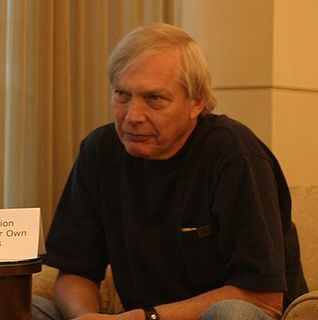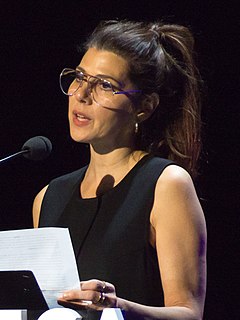A Quote by Bob Edwards
In college, I got interested in news because the world was coming apart. The civil rights movement, the antiwar movement, the women's right movement. That focused my radio ambitions toward news.
Related Quotes
In less than a century we experienced great movement. The youth movement! The labor movement! The civil rights movement! The peace movement! The solidarity movement! The women's movement! The disability movement! The disarmament movement! The gay rights movement! The environmental movement! Movement! Transformation! Is there any reason to believe we are done?
The great social justice changes in our country have happened when people came together, organized, and took direct action. It is this right that sustains and nurtures our democracy today. The civil rights movement, the labor movement, the women's movement, and the equality movement for our LGBT brothers and sisters are all manifestations of these rights.
When I began writing poems, it was in the late 60s and early 70s when the literary and cultural atmosphere was very much affected by what was going on in the world, which was, in succession, the civil rights movement, the antiwar movement, and the women's movement in the 60s, 70s, and into the early 80s. And all of those things affected me and affected my thinking, particularly the Vietnam War.
The gay rights movement of recent years has been an inspiring victory for humanity and it is in the tradition of the civil rights movement when I was a young boy in the South, the women's suffrage movement when my mother was a young woman in Tennessee, the abolition movement much farther back, and the anti-apartheid movement when I was in the House of Representatives. All of these movements have one thing in common: the opposition to progress was rooted in an outdated understanding of morality.
The good news is that there is strong movement in this direction of shifting from domination systems to partnership systems. Over the past several hundred years, one progressive movement after another has challenged traditions of domination - from the 18th century "rights of man" movement challenging the "divinely ordained right" of kings to rule their "subjects" to today's environmental movement challenging the once hallowed "conquest of nature."
I think one of the tragedies of the civil rights movement was because the civil rights movement became so court-focused, I think that there was a tendency to lose track of the political and community organizing, and activities on the ground, that are able to put together the actual coalitions of power throughout which you bring about redistributive change. And in some ways, we still suffer from that.































